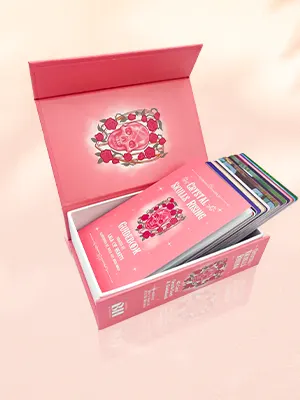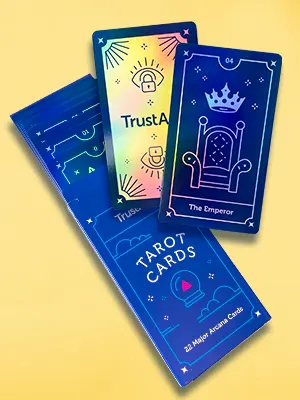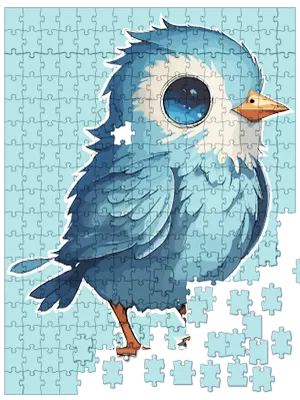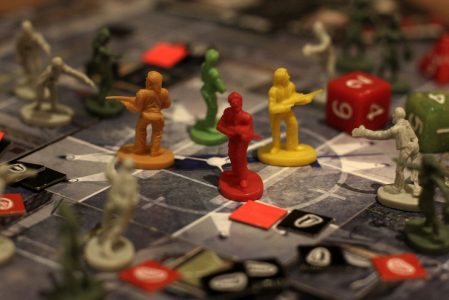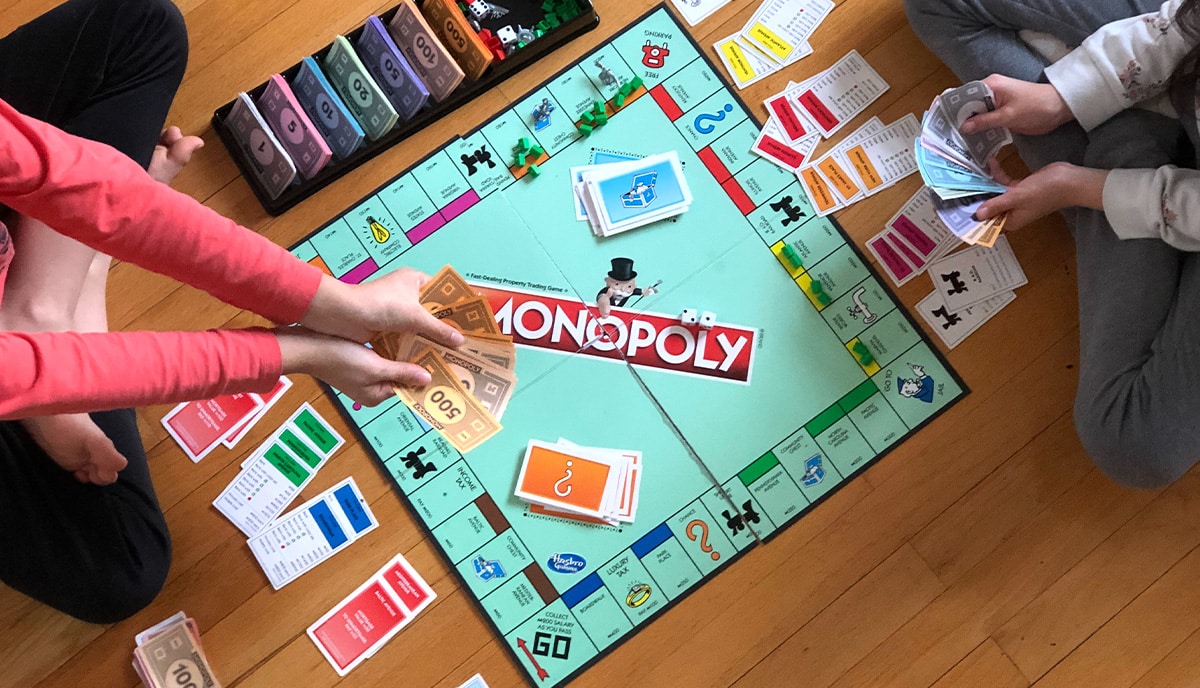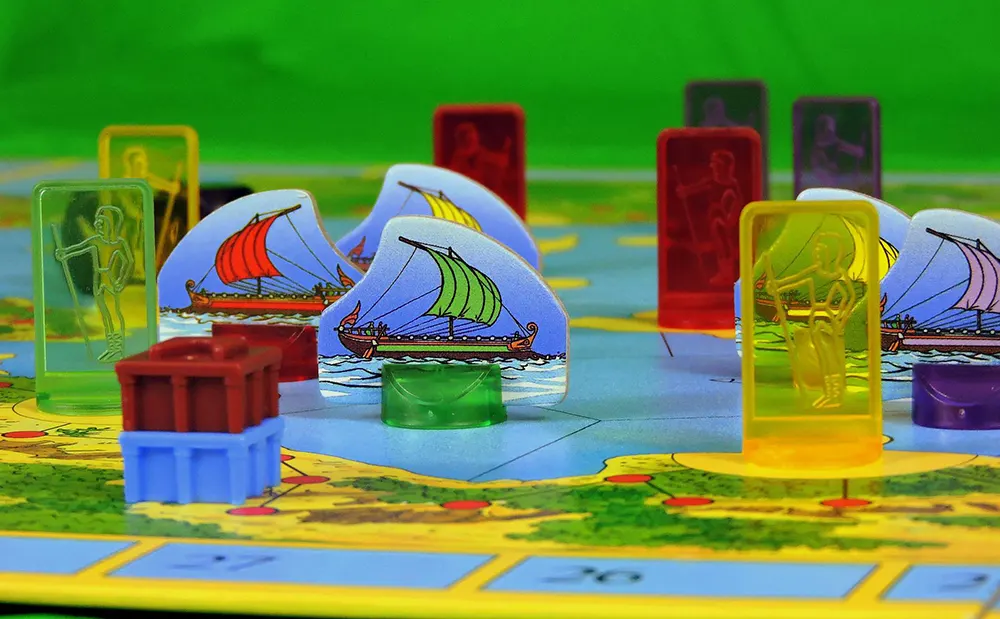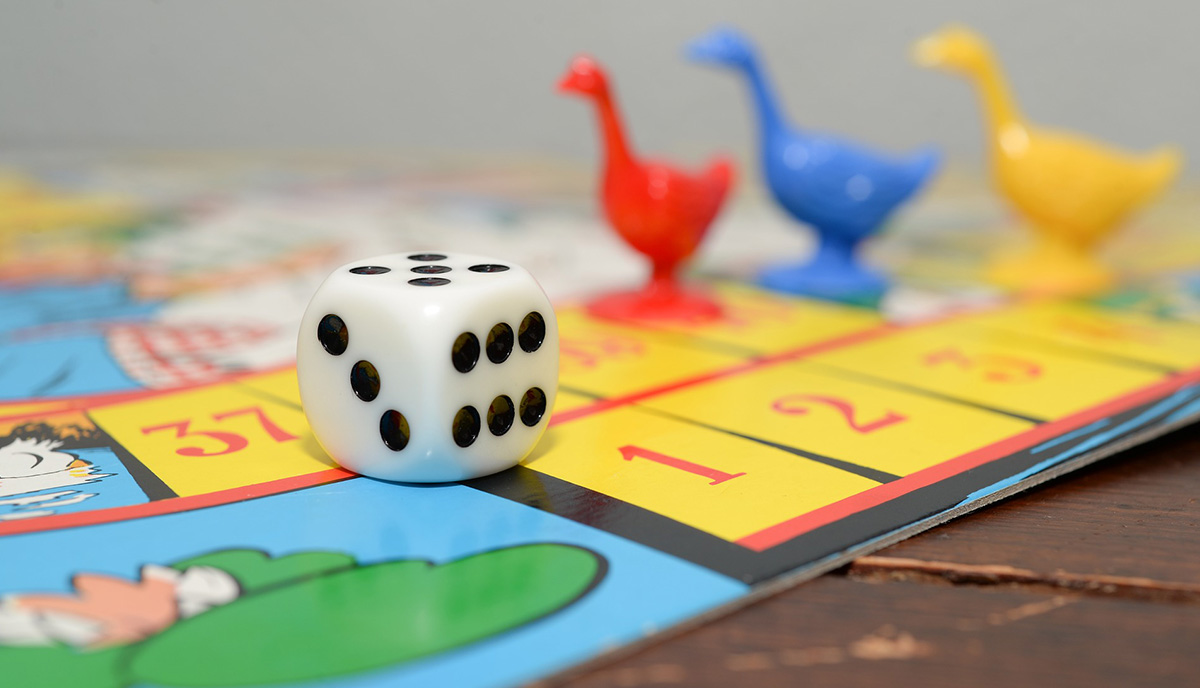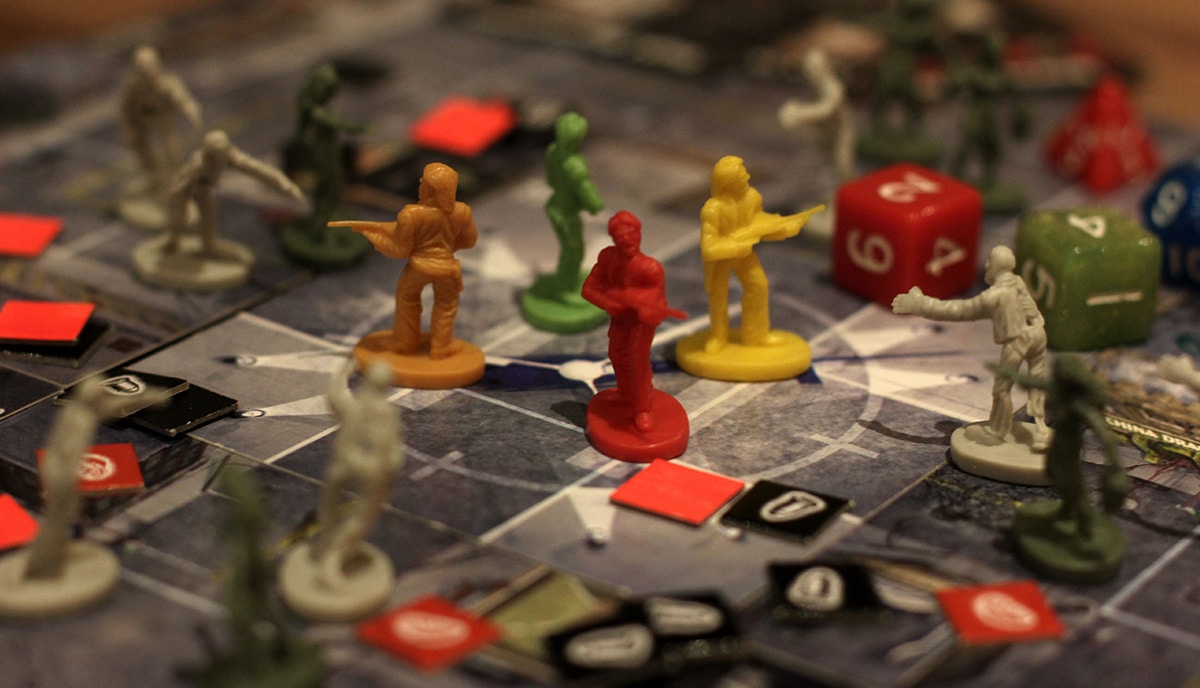
Photo by Fox & Hyde on Unsplash
In short, the answer is that you almost certainly don't need to do anything other than create, print, manufacture, publish, and distribute your game. There's no legal requirement to get a trademark, a patent or register your copyright. And in most cases — at least until you hit the big time — it's a waste of time and money. That said, there are situations in which it's prudent to do these things. So, let's unpack it all and give you the information you need to make an intelligent decision based on the facts.
People rarely steal ideas
If you're like most other new board game designers setting out on this exciting path for the first time, you'll be convinced that you own the single most original, exciting, and unique board game idea that ever existed. You're buzzing to share this idea with the world: not just your friends and family, but the wider gaming community, start up a crowdfunding campaign to get the game made, or maybe submit it as a prototype to a big international game publisher. But you have a concern. You're worried that if you let your idea out into the world before it's been developed and made into a game with your name slapped all over it, it could get stolen.
We've all heard the horror stories of naive game designers proposing their game idea to a publisher who rejects it; and the designer sees their exact game idea on the market from that publisher a year later! Or that you play test your game at a convention, and someone else with more resources and better contacts, picks up the idea and runs with it, bringing it to market under their own name.
But here's the truth: these stories — if any of them are true — are rare anecdotes and do not represent the reality of the game world. Big publishers have entire departments busy working on generating and developing game ideas all the time; they don't need to steal yours. For another thing, the big publishers have their fingers on the pulse of the market and that's what guides them to select the latest game to go into development — current market trends, not the latest new thing. Other game designers probably won't be as impressed by your idea as they are by their own! Most game designers are far too caught up in trying to get their own ideas to market to chuck them aside in favor of stealing yours. But the main point is this: your idea — at this early stage of its development — may not be as exciting or original as you think.
It's true. We're not saying that it isn't a great idea, or that once it's developed, made, and distributed, it might not take the world's board game communities by storm; but as with novels and movies, at this stage, it's unlikely that anyone's ever going to come up with a truly unique idea. The trick is to take any good idea and make it work.
"It takes a village to raise a child"
There's an old saying that it takes two people to make a child and a village to raise one. That's so true of games. Hardly any game ever in the history of games was invented, developed, produced, and distributed by only one person. Sure, you may be the central person, the hub, the pivot point, in creating your board game; but it's going to be one hell of a hard slog if you think you're going to do it alone. You need to be a team player. And that means you can't get jealous of your own ideas. You need to be open to input and feedback from others, and shake off the fear of getting your idea out in the world.
There is nothing new under the sun
In the Book of Ecclesiastes, which was written almost 3,000 years ago, the poet laments that “there is nothing new under the sun”. If humans thought that way three millennia ago, how much more likely is it we've already thought of all the new ideas in the twenty-first century? What this means is that somebody else may come up with an idea so similar to yours that it seems like they must have stolen it. While real idea theft is extremely rare, parallel invention happens all the time.
And it's no new story, either. Remember Charles Darwin? The great 19th century scientist developed his world-changing theory of evolution by natural selection and was slowly plodding away on writing his book about it — later to be published as On the Origin of Species — when he received a letter from another biologist, Alfred Wallace, explaining his amazing new idea and asking for Darwin's advice. The two men had never met, and both were so cognizant of the revolutionary nature of what they were developing, that neither had shared their ideas with anyone until Wallace wrote his letter. And guess what? Wallace's idea was exactly the same as Darwin's!
In the end, the two men discussed the situation, presented a joint paper to the Royal Society, and Wallace graciously bowed out to allow Darwin to publish first.
So, in short: idea theft is rare. Your idea probably isn't unique after all, and if you waste time hoarding it, someone else may get their independent version to market before you. So, the actual risk isn't that someone else might steal your idea; it's that by worrying about it, you may hold yourself back and miss the boat that someone else sails away on.
With that caveat in mind, let's look at what copyright, trademarks, registered trademarks, and patents are all about and when, despite what we've said above, you might actually want to do something about them. But we must be honest with you. While we know what we're taking about, we're not lawyers and you mustn't take any of the following advice as having legal weight. Before you decide, take any actions, or spend any money, take proper legal advice from a qualified lawyer. That said, let's dive in.
Do you need to copyright your board game design?
International copyright protects the rights of any creator to be identified and have control over any creative work, be that music, visual art, literary work, a graphic design, a play script, a movie, a game design, or anything else that's a creative product. Copyright is invested automatically as soon as you create something. Even if nobody else knows that you've made it. You don't need to “register” or “apply for copyright”. But, if you want to prove that you own the copyright, then you'll need to lodge a dated version of your creation with a bank or a lawyer. It's usually more than enough, however, to simply publish the international copyright symbol next to your name and the date of first publication on the box, board, and rule book, for example. Note, however, that ideas are not copyright. It's only when you create something that expresses that idea that copyright comes into force.
Does my board game need a trademark?
A trademark is a different kettle of fish. Like copyright, it protects any creation which it covers from being copied, used, sold, or otherwise exploited without your express permission, but it isn't granted automatically. You can invent a logo and call it your trademark, in which case it functions similarly to a copyright symbol. However, to give your trademark full legal force, you'll need to register it. The registration process depends on your country of residence, so we'd advise you to get in touch with the trademark registry for your local territory and follow their instructions. But one thing that all trademark registration processes have in common is that you must pay a fee and that they can take a long time to complete — up to a year or even more, sometimes.
You don't need to trademark your board game, but if you're thinking of developing a serious and ongoing business in the industry, then you may want to trademark your company and its creative assets at some point. But there's another reason you might want to explore the trademark registry; and that's not to stop others stealing your idea so much as to check that you're not inadvertently stealing someone else's. In the same way that someone else may have come up with an idea so similar to yours that it's all but indistinguishable; there's always a possibility that your great trademark and game company idea has already been copyrighted and trademarked. For that reason, checking the register to make sure that your trademark and name haven't already been registered, and then registering it if not, may be a smart move.
But you should also remember that, unlike copyright, which is global, each national territory has its own trademark authority. To globally protect your board game or business logo, you'd need to register it with every country in the world. And that's going to get very expensive indeed! You could employ a trademark agent to handle it for you, but you'd be looking at spending something near tens of thousands of dollars.
Do you need to patent a board game idea?
The quick answer to this question is, no, you don't. It's unlikely that you'd get a successful patent on a board game. Patents exist to protect new inventions or extensive redevelopments of existing inventions. No matter how exciting your idea, it's highly unlikely that it's so original that it doesn't fit obviously within the concept of what a board game is!
The bottom line
To wrap up, the bottom line is that you don't need to do anything like register a trademark, apply for a patent, or register your copyright to produce a commercial board game. The most important protection, copyright, triggers automatically and it costs nothing to add the copyright symbol, your name, and a date to your published board game product. But you may, once you realize you're building up a significant business as an independent board game publisher, invest in a registered trademark in the territories in which you publish your games.
Talk to us
Whether you're just planning your first custom board game or you're preparing your completed files, we're always happy to hear from you either to chat through how we can help you realize your board game project or to give you a personalized quote on printing. Get in touch. We can't wait to be part of your success!

